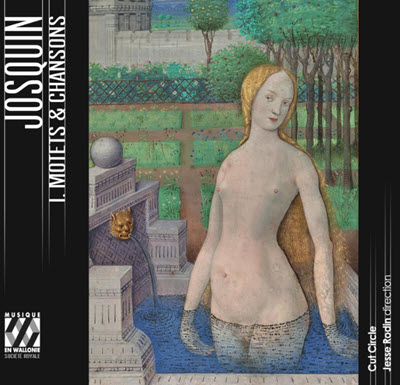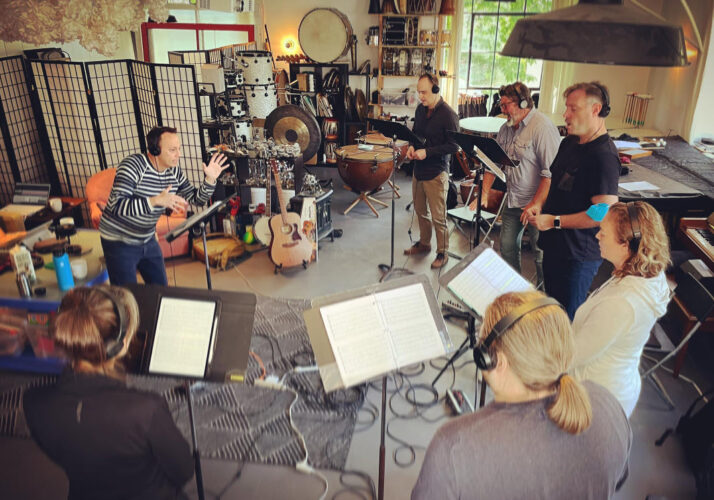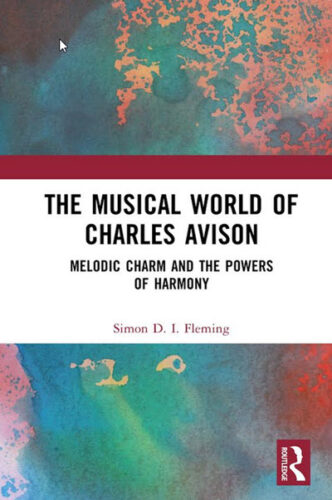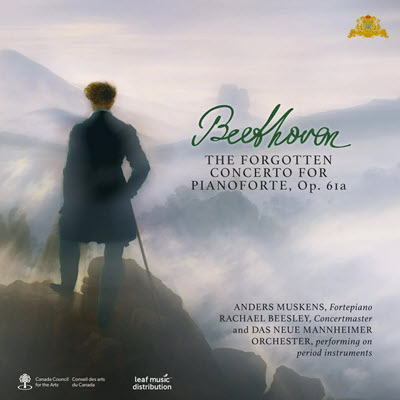by Karen M. Cook
Published April 8, 2024
Josquin: I. Motets & Chansons. Cut Circle led by Jesse Rodin. Musique en Wallonie MEW 2307
When it comes to music of the Renaissance, Josquin des Prez is about as close to a household name as might be possible. Certainly, his works do not want for attention in modern recordings; in fact, he has probably been credited with a fair few works that aren’t even his. Such is the price of fame, one might imagine. Teasing out which works are safely attributable has thus been a major undertaking for modern scholars for quite some time.

One of those scholars is Jesse Rodin. Currently associate professor at Stanford, Rodin has centered Josquin in both his scholarly work and his musical output. His ensemble Cut Circle, founded in 2003, began its illustrious recording career with an album of Josquin’s works. The group returns to Josquin on this latest release, originally planned for the 500th anniversary of the composer’s death in 2021.
As per usual for Cut Circle, they take an approach to this repertory that’s different from many other ensembles; rather than reverberant reverence, they utilize a more intimate acoustic, one that mimics the smaller side chapels that performers of this repertory might have used. Their tempi are much sprightlier than most. Instead of blend, they aim deliberately for audibility of the individual line. And their rather nasal timbre and regional pronunciation creates a sound world that is more Musica Reservata than Tallis Scholars.
Needless to say, the famous imitative opening of Ave Maria … virgo serena that begins the album is at once familiar and incredibly startling. The faster tempo is revelatory, especially in the later contrasting section in triple time, which is positively dance-like; the concluding prayer still feels a bit too quick for me, though, and as a result a bit less supplicatory than I might prefer.
The album is split into two sections, as its title evinces and the Ave Maria … leads the charge into the first section of motets. Of this group, the shorter Ave verum corpus is a real standout; the women’s voices are particularly compelling, and its constant cadences to the unison and octave are spectacularly highlighted here by beautiful intonation and transparency of texture.
That same transparency really allows the listener to hear the solmization undergirding Ut Phebi radiis/Ut re mi fa sol la, which I quite enjoy, though some might be taken aback by the vocal timbres approaching the medial cadence. The section of songs utilizes the same timbres and tempi to great effect; listen to the monophonic openings of Une musque de Biscaye or Scaramella (two particular favorites), or the entirety of Faulte d’argent, for a taste of their dramatic, at times humorous attention to the text. Other selections are a bit more sedate, even mournful, as in Parfons regretz or Nimphes, nappés.

It’s a fresh and invigorating approach to well-trodden ground. Cut Circle compels you to listen to these works as though for the first time, creating an almost visual — and visceral — experience. Whether one enjoys the overall effect (and I do, quite a bit), one can’t help but come away from this album feeling as though the ground has shifted a bit. May another Josquin album be quick on this one’s heels.
Karen M. Cook is Associate Professor of Music History at the University of Hartford. She specializes in late medieval music theory and notation, focusing on developments in rhythmic duration. She also maintains a primary interest in musical medievalism in contemporary media, particularly in video games. For EMA, she recently reviewed Palestrina from the Suspicious Cheese Lords.




